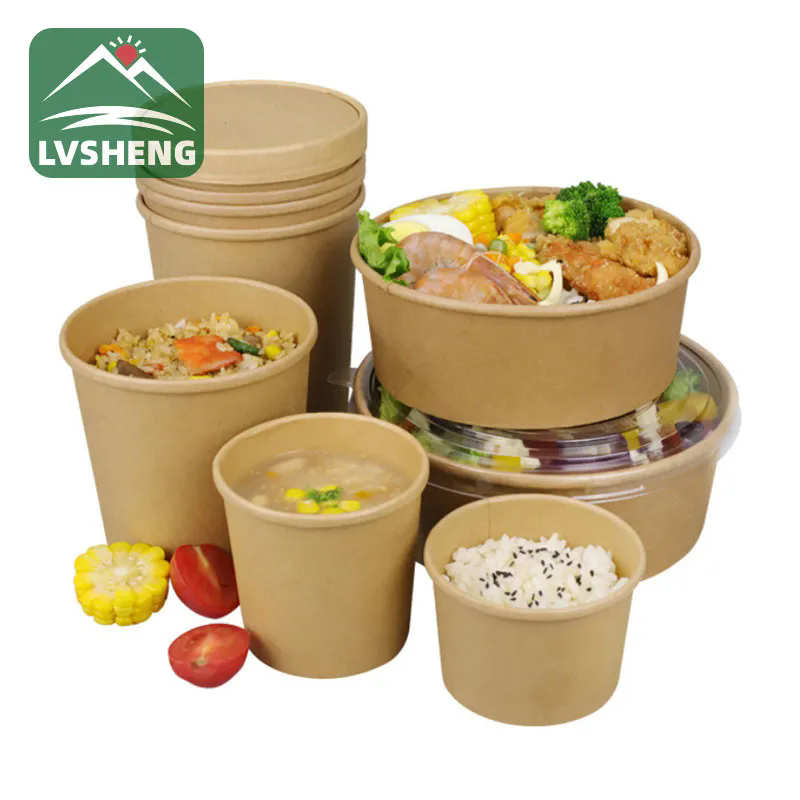Choosing the Right Disposable Salad Container for a Greener Tomorrow
2024-10-12
In today's fast-paced world, the demand for convenience is skyrocketing, especially when it comes to food packaging. Disposable salad containers have become a staple for on-the-go meals, making it easier to enjoy healthy salads without the hassle of cleaning up. But with the growing focus on sustainability, it’s crucial to choose the right type of disposable container that balances convenience with environmental responsibility.
Why Choose Disposable Salad Containers?
Whether you're grabbing lunch at your favorite salad bar or packing a healthy meal for work, disposable salad containers offer convenience. They’re lightweight, affordable, and can be easily discarded after use. With different sizes and designs available, these containers are perfect for a wide range of salads – from simple greens to hearty, layered meals.
Types of Disposable Salad Containers
When choosing a disposable container, there are several materials to consider, each with its own benefits:
1. Plastic Containers
Plastic containers, especially those made from PET (Polyethylene Terephthalate), are popular due to their transparency and durability. They allow consumers to easily see their food and are resistant to leaks, making them ideal for salads with dressings. However, many plastic containers are single-use and not biodegradable, contributing to environmental concerns. Choosing containers made from recycled plastic can help reduce their environmental footprint.
2. Biodegradable Containers
Biodegradable containers are made from plant-based materials like cornstarch, bagasse (sugarcane fiber), or paperboard. These containers break down more easily than traditional plastics, reducing the amount of waste in landfills. They’re a great choice for environmentally-conscious consumers and businesses looking to reduce their carbon footprint.
3. Compostable Containers
Compostable salad containers take sustainability a step further. Made from materials like PLA (Polylactic Acid), they not only break down but can be composted in industrial composting facilities. These containers decompose into nutrient-rich soil within a few months, providing a more eco-friendly option for disposable packaging.
4. Aluminum Foil Containers
Aluminum containers are another option for those looking for recyclable materials. They are lightweight, durable, and can be recycled multiple times without degrading in quality. However, they are less common in the salad container market compared to plastic and plant-based options.
Factors to Consider When Choosing a Disposable Salad Container
When selecting a disposable container, it’s important to think about more than just the material. Consider the following factors:
- Size: Ensure the container is large enough to fit your portion of salad while leaving room for toppings and dressings.
- Lid Type: A secure lid is essential to avoid leaks, especially for salads with liquid components like dressing or fruits.
- Microwave and Freezer Compatibility: Some people may want to store or reheat their salads. In such cases, choosing a container that’s microwave and freezer-safe is a big plus.
- Design and Appeal: For businesses, presentation is key. Transparent containers can enhance the visual appeal of salads, making them more enticing to customers.
- Environmental Impact: Choose containers made from recyclable, biodegradable, or compostable materials to reduce your environmental footprint.
The Future of Salad Packaging: Sustainable and Smart
With increasing consumer awareness and a push for more sustainable packaging options, the future of disposable salad containers is leaning towards eco-friendliness. Many companies are innovating with sustainable materials, while also creating "smart" packaging that helps preserve freshness for longer. In the coming years, we may even see the rise of edible packaging, where the container itself becomes part of the meal!
Conclusion
As the trend of healthy eating grows, so does the need for convenient, eco-friendly food packaging. Disposable salad containers are no longer just about convenience—they also represent an opportunity to make environmentally conscious choices. By opting for biodegradable, compostable, or recycled materials, consumers and businesses can enjoy the best of both worlds: fresh, delicious salads without the guilt of excess waste. So next time you grab a salad on-the-go, think about how your choice of container impacts the planet. A little mindfulness goes a long way in shaping a greener tomorrow.



